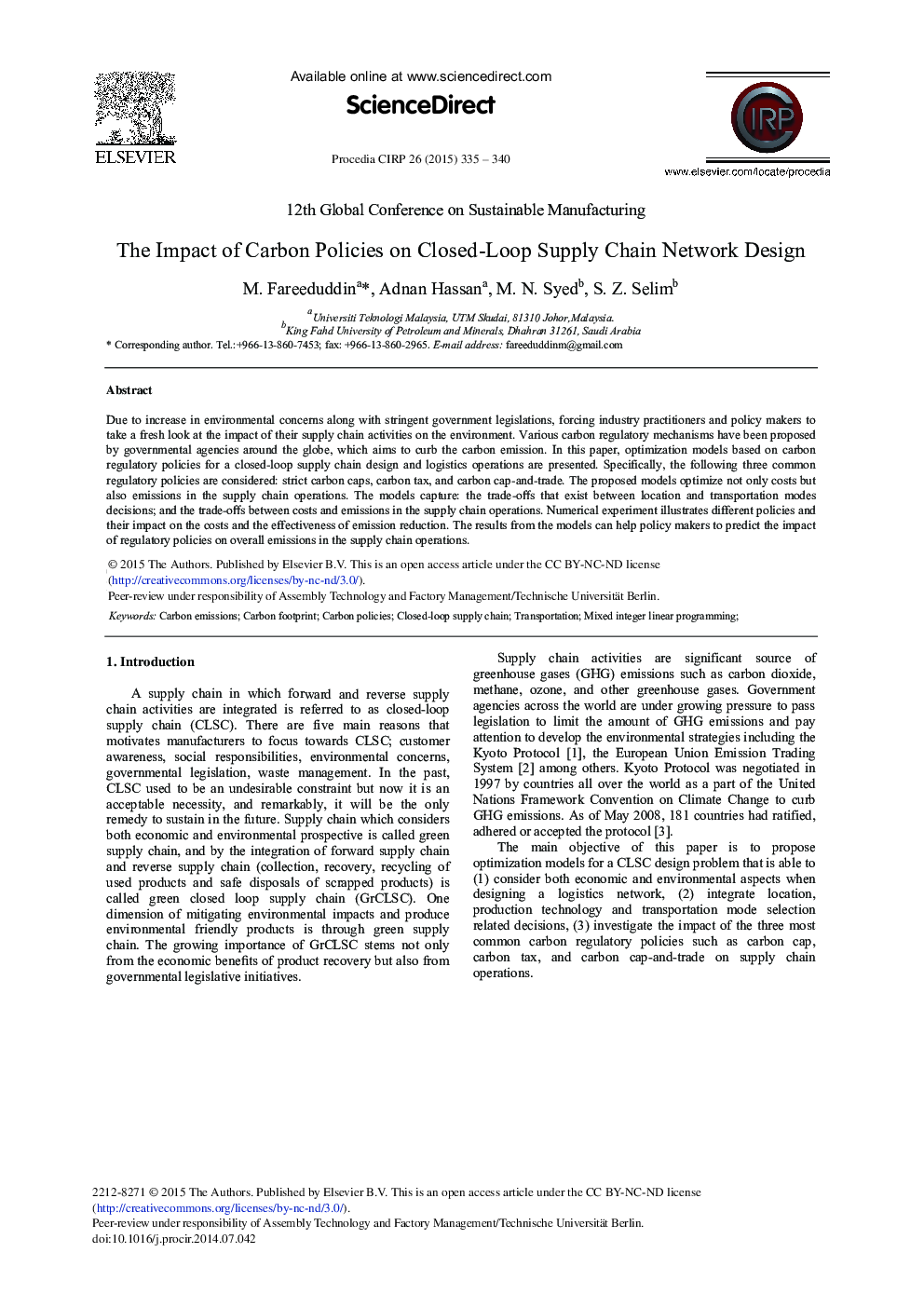| Article ID | Journal | Published Year | Pages | File Type |
|---|---|---|---|---|
| 1699948 | Procedia CIRP | 2015 | 6 Pages |
Due to increase in environmental concerns along with stringent government legislations, forcing industry practitioners and policy makers to take a fresh look at the impact of their supply chain activities on the environment. Various carbon regulatory mechanisms have been proposed by governmental agencies around the globe, which aims to curb the carbon emission. In this paper, optimization models based on carbon regulatory policies for a closed-loop supply chain design and logistics operations are presented. Specifically, the following three common regulatory policies are considered: strict carbon caps, carbon tax, and carbon cap-and-trade. The proposed models optimize not only costs but also emissions in the supply chain operations. The models capture: the trade-offs that exist between location and transportation modes decisions; and the trade-offs between costs and emissions in the supply chain operations. Numerical experiment illustrates different policies and their impact on the costs and the effectiveness of emission reduction. The results from the models can help policy makers to predict the impact of regulatory policies on overall emissions in the supply chain operations.
